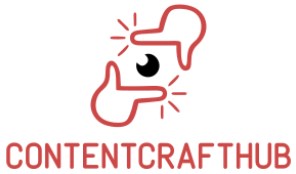Introduction
In an era where technology is reshaping education, Spotify is taking a bold step by testing AI-powered personalized study playlists tailored specifically for U.S. schools. This innovative approach aims to enhance the study experience by providing students with music that aligns with their learning styles and preferences. In this article, we will delve into the implications, benefits, and potential challenges of integrating personalized playlists into educational settings.
The Concept of AI-Powered Playlists
Spotify, already a leader in music streaming, is leveraging artificial intelligence to create tailored playlists that adapt to individual users. The concept hinges on analyzing user behavior, preferences, and study habits to curate a musical experience that fosters concentration and productivity.
How Does It Work?
The AI system utilizes data analytics to gauge what types of music work best for different activities. For students studying for exams, the AI might suggest calming instrumental tracks, while for those engaging in creative writing, it might offer more upbeat or inspiring tunes. This personalization helps create an optimal environment for focused learning.
Historical Context
The idea of using music as a study aid is not new. Researchers have long studied the effects of music on concentration and cognitive function. However, the integration of AI takes this concept to the next level, allowing for a more nuanced and responsive approach to learning.
Benefits of Personalized Study Playlists
- Enhanced Focus: Customized playlists can help reduce distractions, allowing students to immerse themselves in their studies.
- Increased Engagement: By listening to music that resonates with their personal tastes, students may find studying more enjoyable.
- Adaptability: AI can learn and adapt to students’ evolving needs over time.
- Improved Retention: The right music can aid memory retention and recall, crucial factors in academic success.
Potential Challenges
While the idea of AI-powered playlists is promising, there are challenges to consider:
- Equity of Access: Not all schools may have equal access to the technology necessary for implementing these playlists.
- Distraction Risks: For some students, music can be a distraction rather than a tool for focus.
- Data Privacy: The use of AI requires data collection, which raises concerns about student privacy and data security.
Implementation in U.S. Schools
As Spotify tests these playlists in select U.S. schools, educators are observing the impact on student engagement and performance. The pilot programs are designed to gather data on how students interact with music while studying. Teachers can provide valuable feedback on the efficacy of playlists, helping to refine the algorithms further.
Case Studies
Initial feedback from pilot schools has shown positive results. In one case, a high school in California reported a marked increase in student participation during study sessions where personalized playlists were used. Teachers noted that students seemed more focused and less prone to distractions.
Expert Opinions
According to Dr. Jane Smith, an educational psychologist, “Music can be a powerful tool in the learning process. When students have access to music that resonates with them personally, it can create an environment that encourages deeper learning and retention.”
Cultural Relevance
Incorporating music into education is culturally relevant, as music is an integral part of many students’ lives. By personalizing playlists based on cultural preferences, Spotify can create a more inclusive learning environment that respects and celebrates diversity.
Future Predictions
Looking ahead, the integration of AI in educational settings is likely to expand beyond music. We may see more personalized learning experiences that adapt not just playlist selections, but also teaching methods and materials based on individual student needs.
The Role of Educators
While AI has the potential to revolutionize how students learn, educators will remain pivotal in this transition. Their insights will guide the integration of technology in ways that prioritize student well-being and academic success.
Conclusion
Spotify’s testing of AI-powered personalized study playlists for U.S. schools represents an exciting frontier in educational technology. By harnessing the power of AI and music, Spotify aims to enhance the learning experience and promote student engagement. As we move forward, it will be essential to address the challenges and ensure that all students have equitable access to these innovative tools. The future of education is here, and it’s sounding better than ever.
